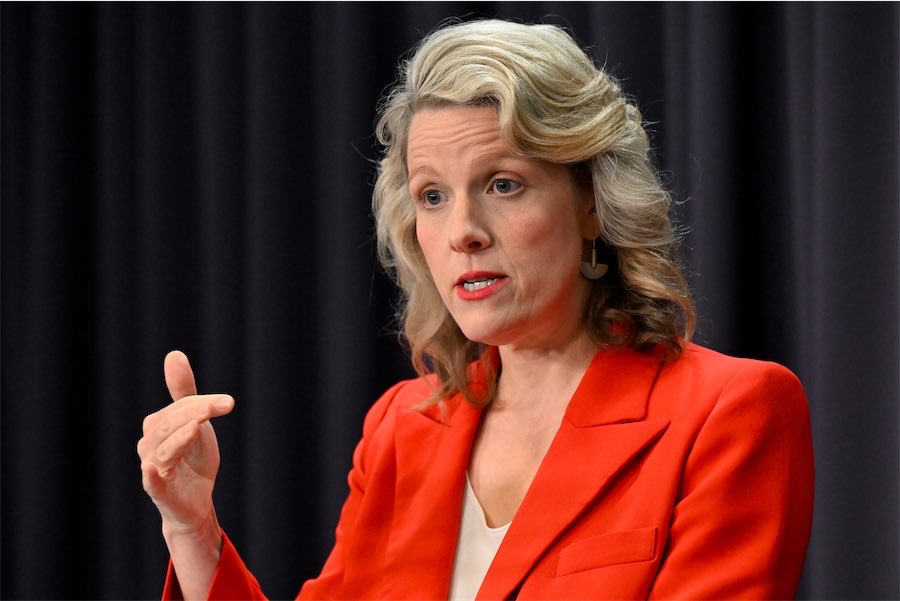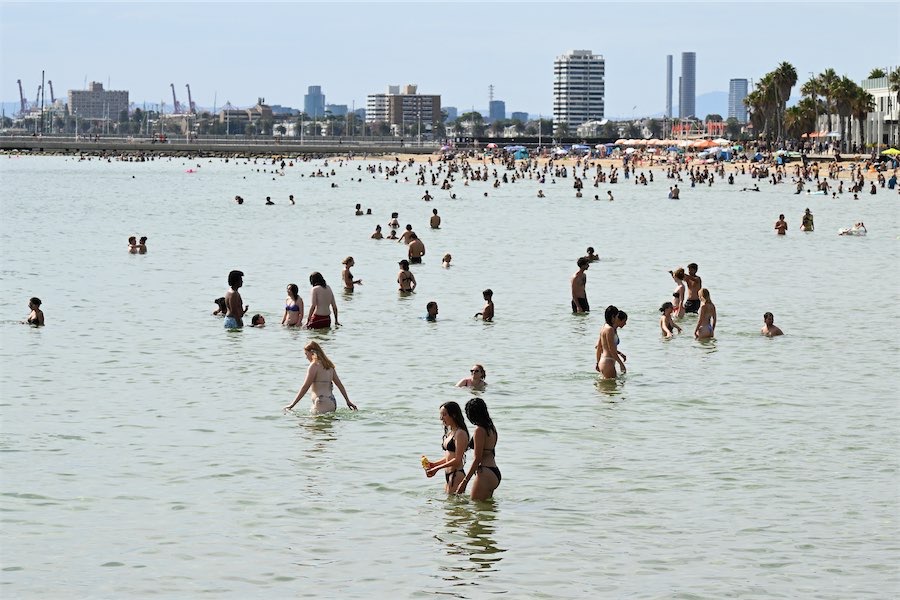
By Tess Ikonomou and Andrew Brown in Canberra
LAWS stripping dual Australian citizenship from people guilty of terrorism and espionage have passed federal parliament’s lower house.
Home Affairs Minister Clare O’Neil said the laws would repeal previous citizenship-stripping powers that were deemed invalid by the High Court.
“The bill provides an appropriate mechanism to deal with dual-Australian citizens who have committed crimes that are so serious and so significant that they demonstrate the repudiation of their allegiance to Australia,” she said.
“The government understands the complexities of this significant legislation and is committed to a robust and workable regime. Laws that fail in the courts don’t make our country any safer.”
The laws will go before the Senate, having passed the House of Representatives 109 votes to 11.
Under the laws, citizenship can only be stripped if an order is made by the home affairs minister, but must be before sentencing is carried out.
But the federal opposition have accused the government of trying to race the laws through parliament without consideration.
Opposition Leader Peter Dutton called the debate “farcical”.
“This government has presided over an absolute train wreck of a policy which is putting Australian citizens at risk,” he told parliament.
“We get this patchwork framework and it’s unacceptable.”
Australian citizenship would not be able to be stripped if it would make someone stateless.
Those convicted of crimes such as terrorism offences, espionage or foreign incursion would be potentially subject to the laws.
The opposition leader said the proposal did not adequately address cases from the High Court the laws were aimed at addressing.
The laws came after convicted terrorist Abdul Nacer Benbrika had his citizenship restored after the High Court ruled against it being cancelled.
Mr Dutton had cancelled his citizenship in 2020 when he was serving as home affairs minister.
Greens leader Adam Bandt said the seriousness of the proposed laws meant they should not be rushed through parliament.
“That is no way to legislate, but it’s what happens when Labor gives into the fearmongering of the opposition,” he said.
It comes as the government flagged it would set up preventative detention laws following the High Court decision which ruled indefinite definition was unlawful.
More than 140 people have been released into the community following the decision.
The Albanese government will next week bring legislation to parliament to allow it to re-detain the released criminals, after the court on Tuesday published the reasons behind its decision.
The laws have been described as a “robust preventative detention and community safety order regime”, modelled on high-risk terrorist laws enacted under the coalition government.
One of the released detainees who authorities had not been able to locate was found by security agencies.
It’s understood the former detainee is now complying with the stringent new visa conditions, such as electronic monitoring.
Constitutional law expert Anne Twomey said the court’s judgment would support legislation that allowed an individualised process.
Seeking to categorise the entire cohort as suitable for re-detention because they posed a risk to the community would not succeed, she said.
“This judgment wouldn’t support that,” Professor Twomey told ABC radio.
“Trying to detain an entire group of people simply because they’re unlawful non-citizens is not going to work.”
Convicted murderers, rapists and those who have committed sexual offences against children are among the people released.
Who can be trusted?
In a world of spin and confusion, there’s never been a more important time to support independent journalism in Canberra.
If you trust our work online and want to enforce the power of independent voices, I invite you to make a small contribution.
Every dollar of support is invested back into our journalism to help keep citynews.com.au strong and free.
Thank you,
Ian Meikle, editor




![Canberra’s woodchopping association – the Hall and District Axemen’s Club – is rebranding to Capital Country Woodchopping.
“We didn’t want to be exclusively a Canberra association and we deliberately left any gender-specific wording out in the new name,” says president Cheyanne Girvan, 32.
“We also went a different [way] to other associations under NSW by not including ‘association’ in our name.”
Four years ago the Hall and District Axemen’s club’s membership was 25.
Cheyanne says this name change will give the club the versatility to grow into other areas and on to greater things.
To read on about Cheyanne's story with the woodchoppers, visit our website at citynews.com.au or click the link in our bio!
@@capitalcountrywoodchopping
#woodchopping #woodchoppinggirl #woodchoppingaustralia #axemen #axewomen #woodcutter #canberrastories #storiesthatmatter #citynews #journalism](https://citynews.com.au/wp-content/plugins/instagram-feed/img/placeholder.png)
Leave a Reply